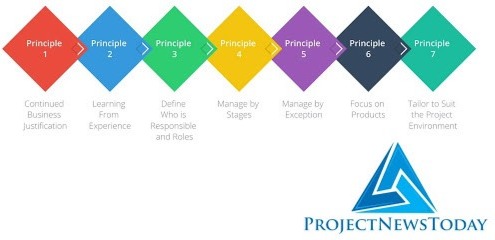T2P 12 – Prince 2 Principles 1 - 3
- Temis2Pence

- Aug 6, 2021
- 3 min read
Happy Friyay! As I’m writing this blog the weather has opted to change for the third time, I wonder how many more it will by the time I wrap it up. Last week I wrote about resilience, but that didn’t prepare my scalp for the adversity it experienced as I tried single plaits for the first time. One of the major benefits for myself this pandemic was having more time to focus on self-study, I have just started with Managing Successful Programmes this week. Whilst this is in progress one course, I have completed through self-study is Prince 2. This is a great project management course and for this week’s blog I will go over 3 of its 7 principles.
- They are proven in practice over many years
- Provide practitioners confidence to manage the project
- Applies to any project
Principle 1 – Continued Business Justification
For a project to have continued business justification, it means that all projects are required to have a business case. If the business case becomes invalid during the project or there is not one in place a project should be stopped.
A high-profile international project that continued was the new Berlin airport, this opened October last year. Delivering late by 8 years and overbudget by around €5 billion, but a key benefit of the project was to generate more travellers to Berlin.
Closer to home, a project I continue to follow with personal interest is the delivery of Crossrail. Some of the benefits it is expected to deliver are better transport around the South East, delivery of new houses and increased to London rail network capacity. For these reasons the project has been given the green light to continue, whilst being over 3 years late and 4 billion over budget.
Principle 2 – Learn From Experience
Prince 2 project teams should make use of the information available from similar previous projects. All projects are unique but taking the time to learn from previous projects can allow teams to work more effectively, for example the identification of key stakeholders can be made easier. Project learnings are called lessons, and can be put into 2 categories; what went well? & what didn’t go well? Lessons should be observed and recorded at 3 stages of the project; when starting, as it progresses and as it closes.
Whilst this is a Prince 2 principle, it certainly can be used more generally. When I wrote about career aids, I spoke about making use of the experience and knowledge of a mentor. Having started reading the Civil Service Social Mobility report, it explains that one barrier to progression is “Unpicking the (hidden) rules of the game.” This is where a mentor can be extremely helpful in sharing from their experiences some of the hidden rules that they’ve uncovered.
Principle 3 - Defined Roles & Responsibilities
Project teams are made up of several people, which tend to include several cross-functional skills, these can be from different organisations. These are categorised as stakeholders, and in Prince 2 there are 3 primary stakeholders:
- Business sponsors are those who make sure the project delivers value for money.
- Users will use the products once created, so they receive the benefits.
- Suppliers provide the resources and expertise to the project and produce the products.
All stakeholders and their interests should be recorded in a project management team structure to a high level, allowing everyone involved to be clear of their role in the project. Below is an organisation chart which is used as way of capturing project roles within teams.
An example of the primary stakeholders in a house refurbishing project would be:
- Business Sponsor – Homeowner
- Users – The occupants of the house
- Suppliers – The decorators
So, the weather has flipped flopped from rain to sun another four times, hopefully there’s some more stability over the weekend. I’ll dive into the remaining principles in the following blogs, this should’ve served as a high-level overview of the key contents that are taught in Prince 2. For anyone interested in project management, I’d highly recommend studying Prince 2, it is one of the most common qualifications I see on project delivery job descriptions, whatever the type of job role.
Temis2Pence








Comments